
SPUDS 101: Varieties, Planting & Care
Spuds 101: Varieties, Planting & Care
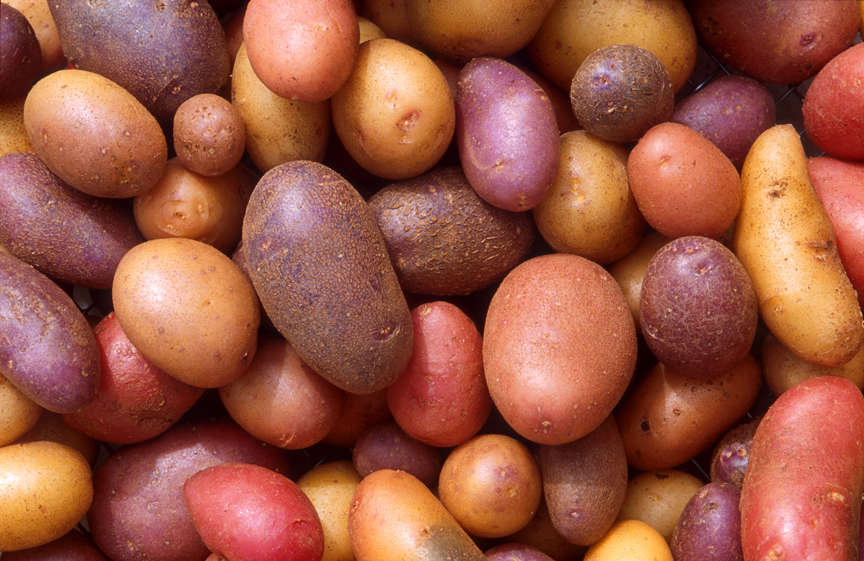
Seed Potato Varieties 2019
Cal White (Organic)
Cherry Red (Organic)
Harvest Blend
Purple Majesty (Organic)
Red Norland
Rose Finn Apple (Organic)
Russet Goldrush
Russian Banana (Organic)
Sangre Red (Organic)
Yukon Gold (Organic)
Yukon Gold
Why use certified seed potatoes? The potatoes that you find at the
grocery store are often treated with growth inhibitors to keep them from
sprouting. Also, unlike certified seed potatoes, they are not guaranteed to be
disease free, and they usually produce spuds that are not uniform in shape.
Cherry Red (Organic)
Harvest Blend
Purple Majesty (Organic)
Red Norland
Rose Finn Apple (Organic)
Russet Goldrush
Russian Banana (Organic)
Sangre Red (Organic)
Yukon Gold (Organic)
Yukon Gold
Why use certified seed potatoes? The potatoes that you find at the
grocery store are often treated with growth inhibitors to keep them from
sprouting. Also, unlike certified seed potatoes, they are not guaranteed to be
disease free, and they usually produce spuds that are not uniform in shape.
Varieties available while supplies
last. Please check your favorite store for current inventory.
last. Please check your favorite store for current inventory.
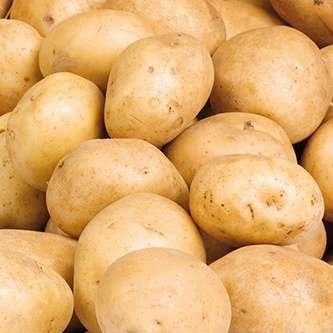
Cal White
(Organic)
Harvest: Early Summer
Light Requirements: Full Sun
Height: 8”-10”
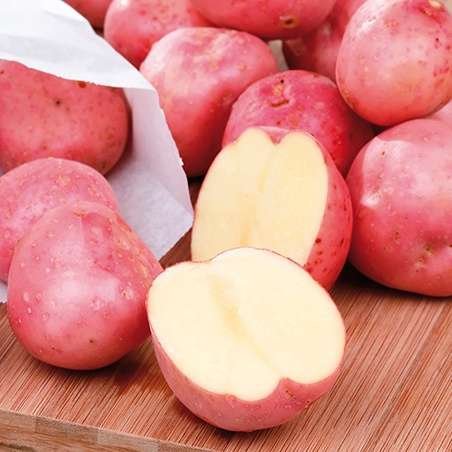
Cherry Red
(Organic)
Harvest: 65 Days
Light Requirements: Full Sun
Height: 8”
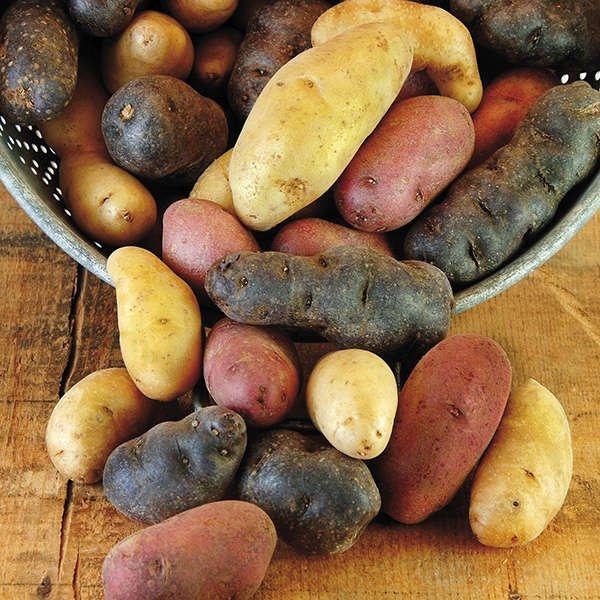
Harvest Blend
Harvest: Late Spring
Light Requirements: Full Sun
Height: 8”-10”
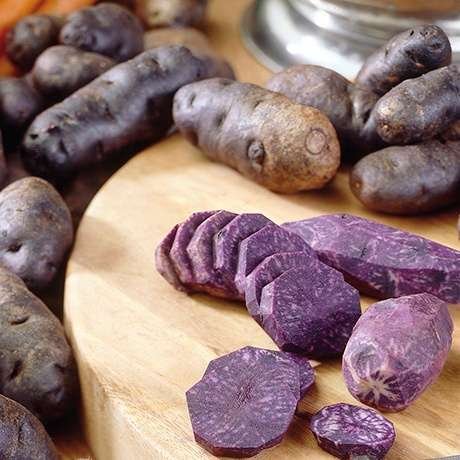
Purple Majesty
(Organic)
Harvest: 80 Days
Light Requirements: Full Sun
Height: 8”
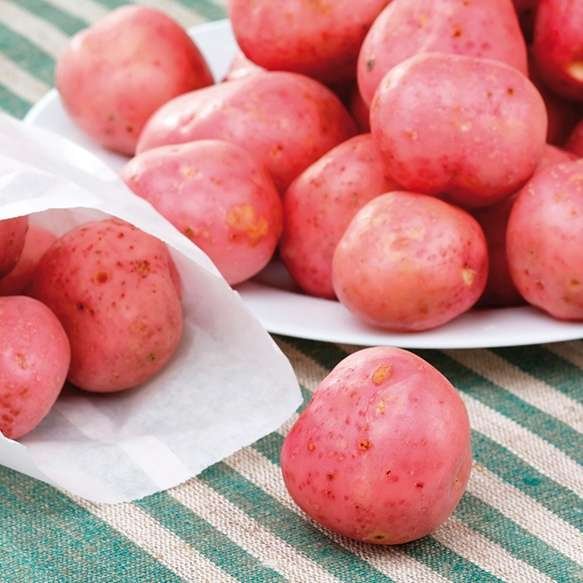
Red Norland
Harvest: 3-4 Months
Light Requirements: Full Sun
Height: 20”
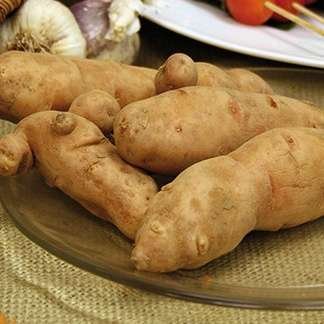
Rose Finn Apple
(Organic)
Harvest: 110 Days
Light Requirements: Full Sun
Height: 8”
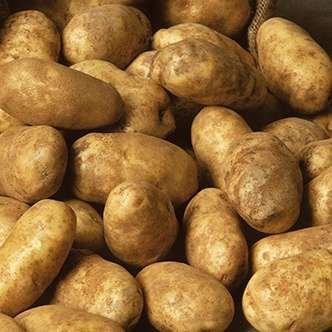
Russet Goldrush
Harvest: Late Spring
Light Requirements: Full Sun
Height: 8”-10”
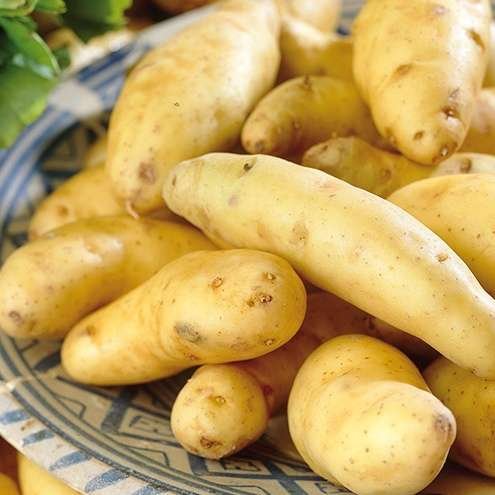
Russian Banana
(Organic)
Harvest: 110 Days
Light Requirements: Full Sun
Height: 8”
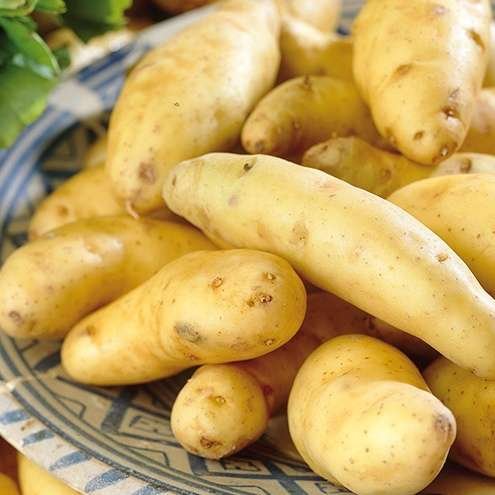
Russian Banana
Harvest: Late Spring
Light Requirements: Full Sun
Height: 8”-10”
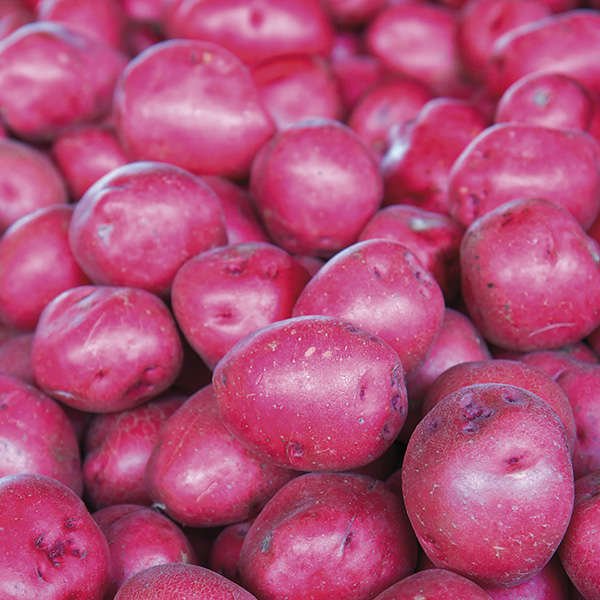
Sangre Red
(Organic)
Harvest: 80 Days
Light Requirements: Full Sun
Height: 8”
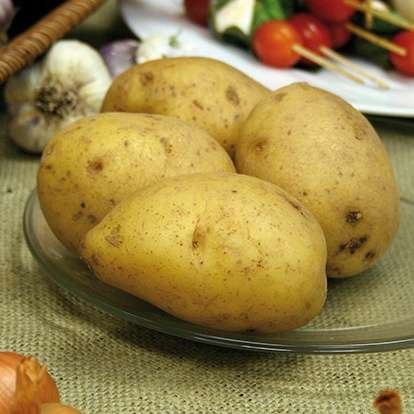
Yukon Gold
(Organic)
Harvest: 65 Days
Light Requirements: Full Sun
Height: 8”
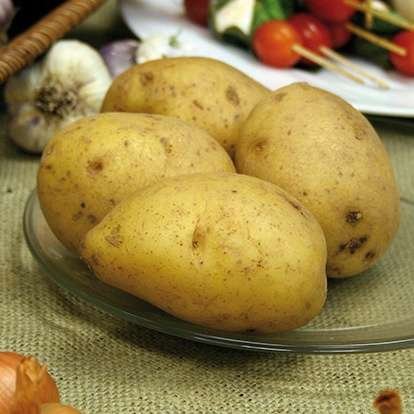
Yukon Gold
Harvest: Early to Mid-Season
Light Requirements: Full Sun
Height: 20”
Planting
Potatoes thrive in moderate temperatures—not too cold or too warm. Ideal temperatures range from above freezing to below 70ºF.
Because they are tubers, they require rich, light-textured soil with good drainage. If you have poor drainage or heavy clay soil, we recommend planting in raised beds or containers. Heavy clay soil can sometimes deform the shape of potatoes.
In the Sacramento region, potatoes are typically planted between December and March.
Because they are tubers, they require rich, light-textured soil with good drainage. If you have poor drainage or heavy clay soil, we recommend planting in raised beds or containers. Heavy clay soil can sometimes deform the shape of potatoes.
In the Sacramento region, potatoes are typically planted between December and March.

Planting in the Ground
- Seed potatoes should be planted in rows 12” apart and the rows should be spaced at least 18–20” apart.
- First, dig the furrows of your rows at least 4” deep.
- Cut your seed potatoes into 1-½” pieces with at least two eyes per piece, or leave them whole depending on how large they are. If you cut them into pieces, let the pieces dry for a day or two before planting, to prevent rot.
- Lay the seed potatoes in the furrows, eye side up and cover with 2” of soil. Water thoroughly and then wait.
- As the potatoes begin to sprout, gently pile more soil on top of them, until your furrow has turned into a mound 4” above soil level.
- Cover rows with a 2”-4” thick layer of fine textured mulch to conserve moisture and insulate tubers should the temperatures drop below freezing being careful not to bury foliage.
Planting in Pots
- Fill the bottom of a large container (at least a 15 gallon or larger) with 6” of a rich potting soil or compost.
- Place seed potatoes, or seed potato pieces on top of the soil, about 12” apart. Top with 2” of soil, water, and wait for them to sprout.
- After they have begun to shoot up past the soil, continue the process, gently mounding soil around them as the shoots grow, until you reach the top of your container.
- Some people apply this method using tires or stackable crates, which allow you more vertical growing space.
Care: Fertilizing, Watering & Harvesting
- Use a starter fertilizer upon planting. We recommend E.B. Stone™ Sure Start. Then fertilize with tomato and vegetable food according to the package directions.
- Soil should be kept moist, but beware of overwatering if you choose to plant in the ground. Soggy soil will result in rotten potatoes.
- Harvest “new potatoes”, or the smaller, less mature spuds, when the plants begin flowering. Reach under the first few inches of soil and pull them off the plant. Harvest the mature potatoes once the plants turn brown.
- Harvest time is between 80 and 120 days after planting, depending on variety. When harvesting, dig carefully to avoid damaging the tubers.
